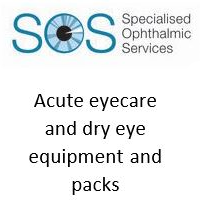General News
College messages for “Back to School” signs to look for
College messages for “Back to School” signs to look for
Back to school: The College of Optometrists highlights key signs to detect potential issues in your child’s vision
College research has revealed that up to 23%1 of parents had never taken their children for a sight test
As children return to school, The College of Optometrists is urging parents to look out for key signs to detect potential problems in their children’s vision after research revealed up to 23%1 of parents had never taken their children for a sight test.
These signs include:
• having one eye turn in or out (this may be easier to spot when they are tired)
• rubbing their eyes a lot
• watery eyes
• clumsiness and poor hand-eye co-ordination
• avoiding reading, writing or drawing
• screwing up their eyes when they read or watch TV
• sitting very close to the TV, or holding books or objects close to their face
• having behavioural or concentration problems at school
• blurred or double vision, or unexplained headaches.
Daniel Hardiman-McCartney FCOptom, Clinical Adviser for The College of Optometrists, says: “Taking children for a sight test can be crucial in identifying conditions, such as lazy eye (amblyopia) when a child’s vision does not develop properly, or a squint (strabismus), when the eyes look in different directions.
Both can be treated successfully if detected at a young age. In the younger years especially, it is important parents can recognise the signs of a child struggling to see clearly, or experiencing changes in their vision. As shown by our research, a massive 23% of parents have never taken their child for a sight test, and if problems go undetected, it could have an impact on their child’s development, achievement at school, and daily life.
Whether or not you suspect an issue with your child’s vision, it’s always important to get the health of their eyes checked and follow the advice of your optometrist.”
All optometric practices are following government guidance, and optometrists are taking the appropriate infection prevention control measures to ensure each patients visit is safe.























